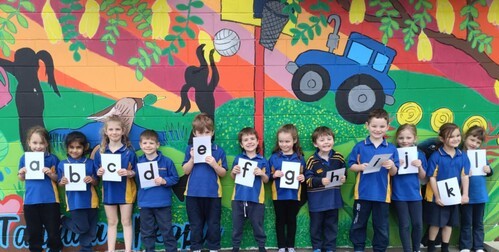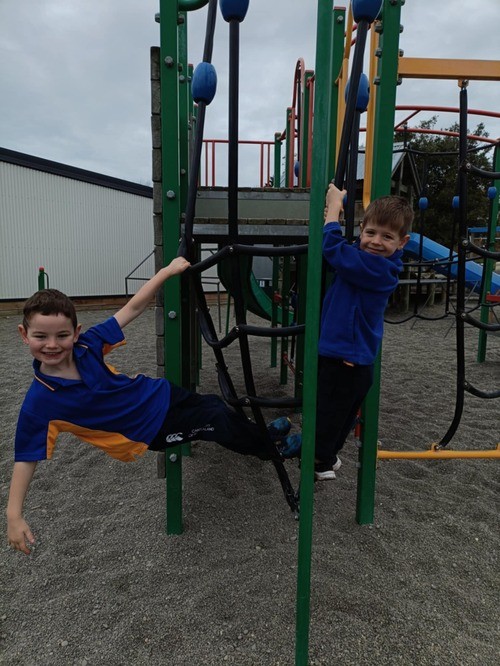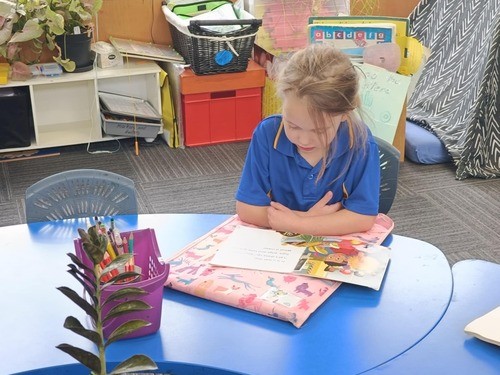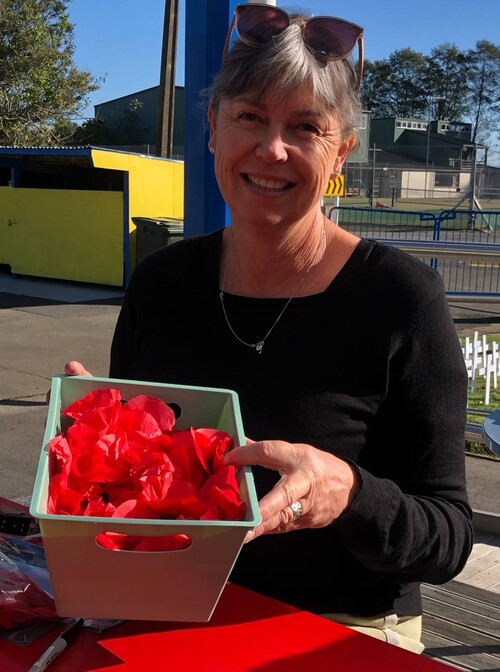


What Papakaio has to offer
- ● A Nurturing Start: We provide a warm, welcoming, and inclusive environment where every child feels safe, valued, and ready to learn.
● Child Centered Learning: Our programme is designed around engaging experiences that foster curiosity, creativity, and essential early literacy and numeracy skills.
● Experienced Educators: A NE teacher who is passionate and committed to supporting each child's individual growth and development.
● Spacious Learning Environment: Children can explore and learn in our bright, well-resourced classroom and expansive outdoor play areas.
● Strong Community Links: We value strong partnerships with our families and the wider Papakaio community, creating a supportive network for our youngest learners.
Our Pre-School Support/Transition Programme
● "Step into Papakaio" Visits: We offer opportunities for your child to visit the classroom and meet their teacher before they officially start, helping them feel comfortable and familiar with their new environment. A Transition Afternoon for any 4 year olds is held the first Thursday of each month from 1.30 - 3.00 to help aid in this transition.
● Flexible Start Dates: We offer flexible start dates throughout the year to align with your child's readiness and your family's needs. Most children usually only need 2-3 visits and these can be arranged ahead of time with Mrs Allen.
● Collaborative Planning: We work closely with local preschools and kindergartens to ensure a smooth transition, sharing information (with your permission) to best support your child's needs.
To arrange a visit or an enrolment pack you can contact us
office@papakaio.school.nz or
chrisa@papakaio.school.nz
● Flexible Start Dates: We offer flexible start dates throughout the year to align with your child's readiness and your family's needs. Most children usually only need 2-3 visits and these can be arranged ahead of time with Mrs Allen.
● Collaborative Planning: We work closely with local preschools and kindergartens to ensure a smooth transition, sharing information (with your permission) to best support your child's needs.
To arrange a visit or an enrolment pack you can contact us
office@papakaio.school.nz or
chrisa@papakaio.school.nz
Skills to work on at home to prepare your child
- ● Self-Help Skills: Encourage your child to practice dressing themselves (doing up zips/buttons), packing their own lunchbox, blowing their nose and managing their belongings.
● Toilet Independence: Ensure your child is confident and independent with their toilet routines.
● Communication & Listening: Practice having conversations, listening attentively, and following simple instructions.
● Early Literacy Exposure: Read together daily, point out letters and words in the environment, and encourage drawing and mark-making. Being able to write their name, holding a pencil correctly
● Early Numeracy Exposure: Count everyday objects, identify simple shapes, and discuss concepts like "more" and "less."
● Social Play: Provide opportunities for your child to play with others, sharing, taking turns, and resolving small conflicts.
● Fine Motor Skills: Activities like cutting with scissors, threading beads, doing puzzles, and playing with playdough help develop hand strength for writing
Our New Entrant day at Papakaio is thoughtfully structured to provide a balanced and engaging learning experience, building foundational skills for our youngest learners. Each morning, we delve into our Structured Literacy programme, explicitly teaching phonological awareness, phonics, and early reading strategies using up-to-date, evidence-based methods to ensure every child builds strong decoding and comprehension skills. This is seamlessly followed by our dynamic Maths programme, which embraces a modern, hands-on approach, fostering deep conceptual understanding, problem-solving, and a love for numbers through engaging activities and real-world connections. Throughout the day, particularly during dedicated writing blocks, children engage in our contemporary Writing programme, where they are empowered to express their ideas, develop their fine motor skills for handwriting, and explore various writing forms with a clear focus on purpose and audience, guided by current best practices in literacy education. We also integrate purposeful play, inquiry-based learning, and opportunities for social development and physical activity, ensuring a holistic and stimulating environment for all.
Mrs Chris Allen
New Entrant Teacher

Home Learning
Your child will bring home a new reading book most nights. At times they will have banks of sight words or numbers to learn. Please read these with your child and record in their notebook. Playing is a huge part of learning so board and card games really help build skills. The important thing is to make any homework a positive experience. 15 minutes is all it should take.
Use a Pause, Prompt, Praise approach.
If you have any questions, ask your child's teacher.
Other ways you can help with Reading at home;
Use a Pause, Prompt, Praise approach.
If you have any questions, ask your child's teacher.
Other ways you can help with Reading at home;
- Spend time with your child reading
- Talk about pictures in books
- Sing waiata and songs, make up rhymes together
- Let your child see you enjoying reading
- Share favourite books
- Point out words on signs,
- Play word games like ‘I spy’ and ‘Simon says…’
- Show enthusiasm to have your child read their book from school, every day.
- Encourage writing, have writing materials available to your child
- Have magnetic letters on the fridge for your child to play with.
- Talking about time, colours, shapes, sharing
- Finding numbers around the house or neighbourhood (clocks, letterboxes, rapid no's)
- Do sums using objects. ‘We need 4 forks and 2 knives, how many do we have’ count them to find the answer
- Using language of position (over, under, out, before and after)
- Counting with your children, forwards and backwards